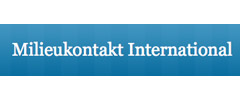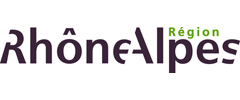International Training Programme “Ecological Alternatives in Sanitation"
Report on content and opportunities from learning about ecological sanitation in Sweden.
04.10.2006 |Monica Diaz

The ecosanitation training team
- A three-week course in Sweden in August 2006, followed by
- A period of six to seven months between the two courses, intended for a professional project work related to Ecosan in participants’ home organisation
- A two-week course in India for Asian participants during February 2007 and a two-week course in Mexico for Latin American participants during April 2007
The first three-week stage took place in Sweden from August 13th until September 1st. One week in a different Swedish city, hosted by a different institution:
- Swedish Institute for Infectious Disease Control at Stockholm
- Linköping’s University at Linköping
- Swedish University of Agricultural Science at Uppsala
30 participants from Asia and Latin America attended this great event where receiving and sharing knowledge and experience related to ecological sanitation took place; Monica Diaz representative of WECF in Mexico, was part of the international group.
Preliminary topics related to hygiene, food production, water management, pathogens, disease transmission, grey water, groundwater, indicators and risk, among others were introduced during the first week.
The second week was focused on the ability of interviewing and the elaboration of protocols accompanied by the development of real interviews; one of them was recorded in order to learn about strengths and weaknesses. Topics as wastewater wetland treatments, evolution of toilet systems and treatment of excreta were as well introduced during this second week.
The third week was focused on topics related to urine & feaces management, dry diverting systems, fertilizers and small scale options; and even a concrete dry-diverting-toilet was built by the participants.
The whole period was accompanied by many visits where EcoSan techniques are being applied in real life among Swedish inhabitants; and by the use of the problem-based learning method which builds on active participation and gave the opportunity to the attendees to get involved in solving problems working within interdisciplinary international groups.
The course was characterized by the great sympathy and kindness of the hosts and organizers, which was a manifestation of the great group interaction, fun and great humour along the three weeks.
This curse takes place annually and applications for next year will start in April or May 2007. For detailed information to the EcoSanRes website.
































